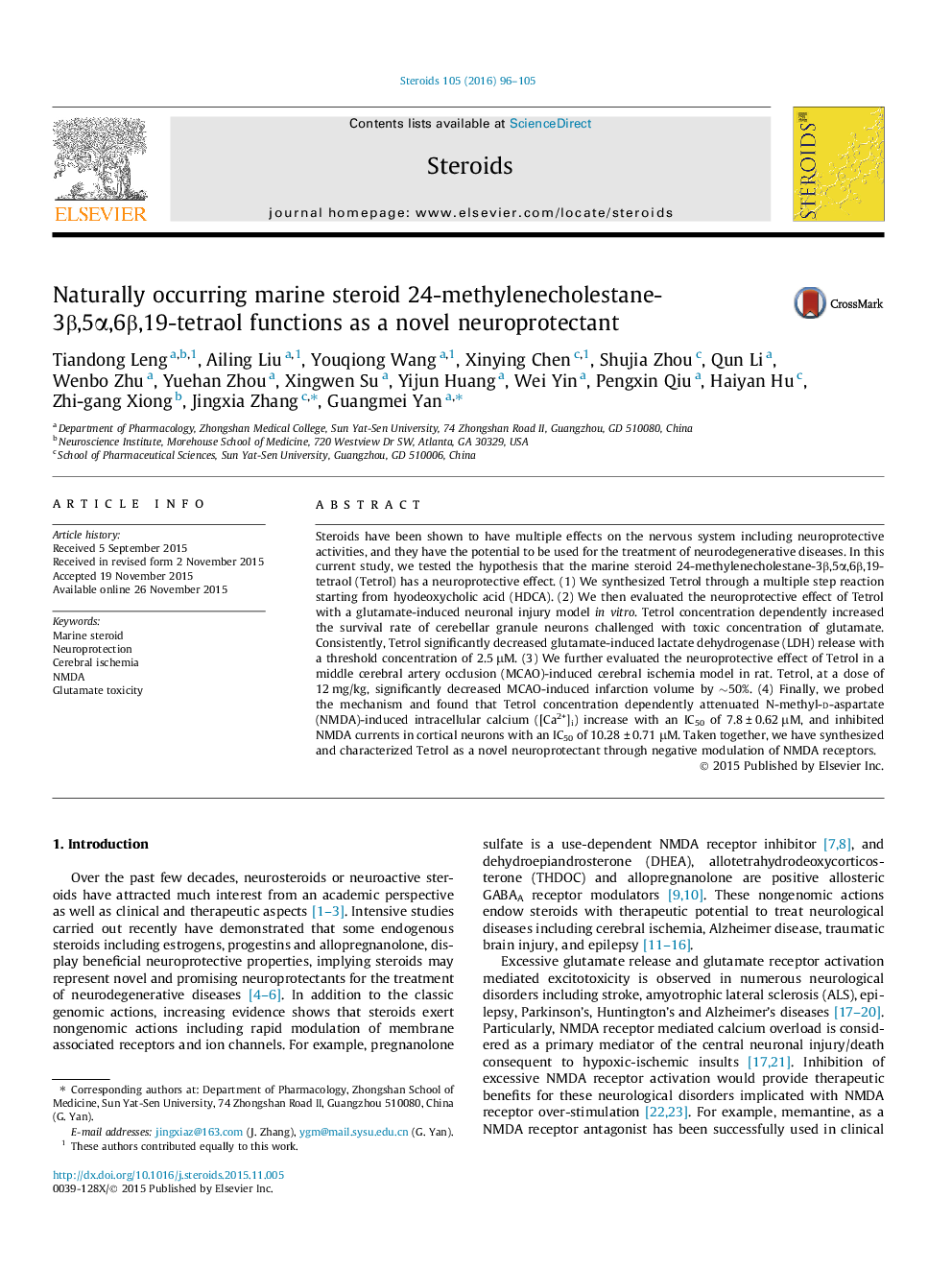| Article ID | Journal | Published Year | Pages | File Type |
|---|---|---|---|---|
| 2027530 | Steroids | 2016 | 10 Pages |
Abstract
Steroids have been shown to have multiple effects on the nervous system including neuroprotective activities, and they have the potential to be used for the treatment of neurodegenerative diseases. In this current study, we tested the hypothesis that the marine steroid 24-methylenecholestane-3β,5α,6β,19-tetraol (Tetrol) has a neuroprotective effect. (1) We synthesized Tetrol through a multiple step reaction starting from hyodeoxycholic acid (HDCA). (2) We then evaluated the neuroprotective effect of Tetrol with a glutamate-induced neuronal injury model in vitro. Tetrol concentration dependently increased the survival rate of cerebellar granule neurons challenged with toxic concentration of glutamate. Consistently, Tetrol significantly decreased glutamate-induced lactate dehydrogenase (LDH) release with a threshold concentration of 2.5 μM. (3) We further evaluated the neuroprotective effect of Tetrol in a middle cerebral artery occlusion (MCAO)-induced cerebral ischemia model in rat. Tetrol, at a dose of 12 mg/kg, significantly decreased MCAO-induced infarction volume by â¼50%. (4) Finally, we probed the mechanism and found that Tetrol concentration dependently attenuated N-methyl-d-aspartate (NMDA)-induced intracellular calcium ([Ca2+]i) increase with an IC50 of 7.8 ± 0.62 μM, and inhibited NMDA currents in cortical neurons with an IC50 of 10.28 ± 0.71 μM. Taken together, we have synthesized and characterized Tetrol as a novel neuroprotectant through negative modulation of NMDA receptors.
Related Topics
Life Sciences
Biochemistry, Genetics and Molecular Biology
Biochemistry
Authors
Tiandong Leng, Ailing Liu, Youqiong Wang, Xinying Chen, Shujia Zhou, Qun Li, Wenbo Zhu, Yuehan Zhou, Xingwen Su, Yijun Huang, Wei Yin, Pengxin Qiu, Haiyan Hu, Zhi-gang Xiong, Jingxia Zhang, Guangmei Yan,
